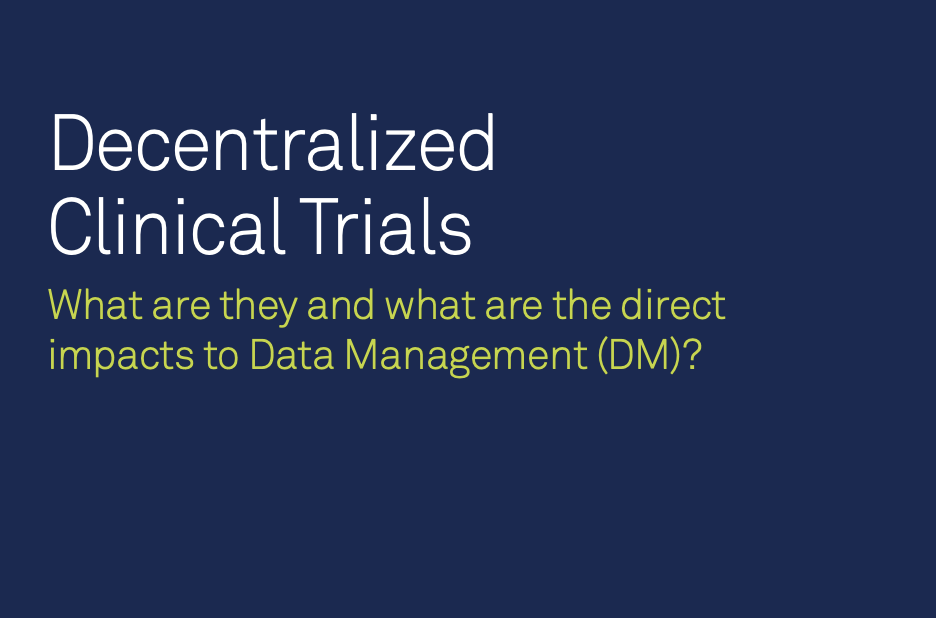
In 2020, after the COVID-19 pandemic surfaced, the need for alternative approaches to clinical trial execution and data capture became a reality overnight. The concept of implementing components of decentralization within a clinical trial became one of ‘here and now,’ versus a concept of the future. In many instances, the pandemic halted the patient’s ability to go to a site. Recruitment, enrollment and retention rates were challenged; and a large percentage of clinical trials were delayed, and some terminated.
As a result, the momentum around the concept of decentralization increased as did the need for capabilities supporting decentralization within a clinical trial. Organizations were ready to shift their business models and processes to support, test and pilot decentralization within their trials. Before the COVID-19 pandemic, many biopharmaceutical companies, contract research organizations (CROs) and medical device manufacturers were exploring new ways in which they could reinvent the clinical development paradigm.
This occurred by conducting pilots to digitally capture outcomes data or options to replace brick and mortar site visits by way of telemedicine, etc. Often these efforts occurred as one-off or siloed efforts within an organization and information was shared in pockets.
However, looking back, these efforts were important in that they enhanced industry learning, helped to lower concerns associated with potential risks, and increased confidence associated with alternative ways to conduct a clinical trial. In essence, these pioneered efforts have become the keystone of our learning associated with remote data collection, data capture and decentralization.